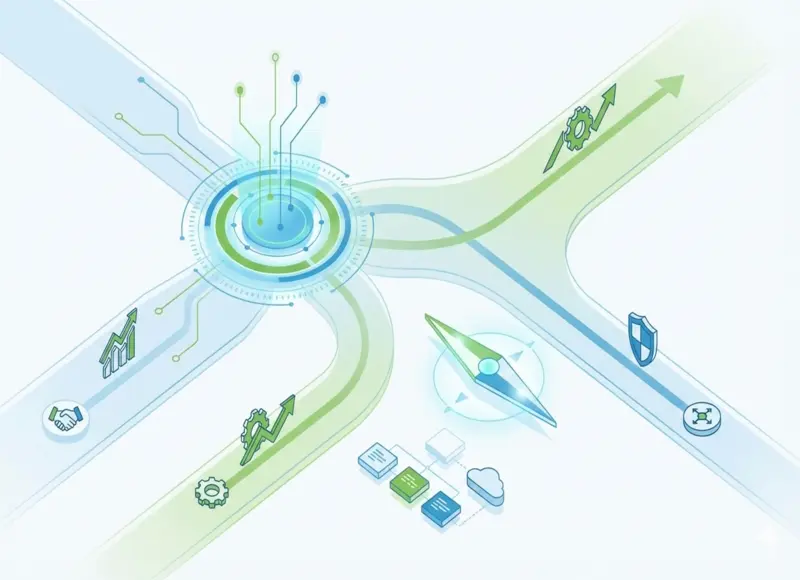Table of Contents
Master six Agile frameworks to elevate your projects. Scrum, Kanban, Lean, XP, Crystal, DSDM offer speed, flexibility, and collaboration.

Developing ERP, CRM, or any other software is crucial and complex. Developers must create an efficient and secure solution based on software specifications and ensure it is delivered on time and within budget. This task can become even more challenging if project requirements are vague or dynamic.
An efficient software development methodology is critical to mitigating these challenges and handling project complexity. Most developers prefer Agile for flexibility and adaptability compared to other software development methodologies. 71% of respondents to the 17th State of Agile Report from Digital.ai use Agile in their software development lifecycle (SDLC).
This article outlines six Agile software development methodologies for you to consider for your project.
Scrum
Scrum is one of the most common agile software development frameworks, which implies having a team of dedicated developers working in small iterations (sprints). The short sprint duration (usually 2 to 4 weeks) makes the development process more adaptable and agile.
The team conducts an Agile review after each sprint.his meeting includes team members, the Scrum Master, and the Product Owner. In this meeting, all stakeholders discuss the success of the previous sprint. They identify any team performance issues and agree on ways to improve. The goal is to find solutions to any problems.
The Scrum Master considers all this information when planning the next sprint, so a team's work processes improve with each new iteration. Ultimately, this ever-improving approach to development allows teams to quickly and efficiently create a product that meets the software owner's and user's needs.
Suitable for:
- Projects with changing or evolving software requirements.
- Small (up to 14 members) and multidisciplinary teams that can collaborate closely toward a common goal.
Kanban
Kanban is another popular project management technique that involves visualizing and gradually improving all work processes. The Kanban board is a key tool in this methodology, which illustrates process stages within the overall development pipeline. All task updates are immediately reflected on the Kanban board. Microsoft uses the Kanban board to ensure the team can collaborate efficiently and stay aligned in real time.
This allows a team lead to instantly identify bottlenecks in the development process and better distribute tasks among team members. Generally, this also enables teams to achieve increased efficiency and speed in software development.
Suitable for:
- Projects with dynamic software requirements.
- Projects where eliminating waste and maximizing efficiency are top priorities (such as those related to software support and maintenance).
Scrumban
Scrumban is a hybrid development methodology that combines both worlds, namely Scrum and Kanban. From Scrum, there are iterations lasting up to two weeks, daily stand-ups, and retrospectives. At the same time, the team lead uses a Kanban board to visualize developers' work processes and task prioritization.
Suitable for:
- Projects that require both Scrum and Kanban (for example, if the team needs to deliver new features to users while providing solution support).
Scrum of Scrums
Scrum of Scrums is a scalable agile development template that helps coordinate multiple Scrum teams to achieve complex and global software development goals. For example, when several independent teams in a company work on different products or one complex solution, such as a CRM or ERP system consisting of many functional modules.
Suitable for:
- Complex projects that require coordination between independent Scrum teams focusing on different software aspects.
Large Scaled Scrum
Large Scaled Scrum (LeSS) is another framework that allows you to apply Scrum across multiple teams that work together on the same product. There are two main types of LeSS: Basic LeSS for companies with 2–8 teams (10–50 people) and LeSS Huge for eight or more teams (50–100 people or more in total).
Teams following the LeSS methodology use a common backlog, sprints, and Scrum events (such as retrospectives), which are managed and utilized in parallel to ensure the alignment of work across all teams. The LeSS framework also includes a Component Product Owner role who manages all cross-team coordination.
Suitable for:
- Large-scale and complex projects in which multiple teams work on the same product or closely related development aspects.
Scaled Agile Framework
The Scaled Agile Framework is a set of practices by which Agile can be implemented on an enterprise-level scale. This covers everything in the company related to defining roles and responsibilities in the Agile teams, how work planning must be approached, and the project management methods. The four available SAFe configurations depend on the business's growth stage; the company can choose from any of the following: Essential SAFe, Large Solution SAFe, Portfolio SAFe, and Full SAFe.
Suitable for:
- Massive projects that require the management and coordination of 5 or more SCRUM teams.
Final thoughts
Software development is not easy, as it involves a wide range of challenges. Fortunately, these can be more manageable if a team follows the proper development methodology. Most developers choose agile software development models for flexibility and efficiency or use hybrid approaches.
Although Agile can benefit the development team and software owner, adopting it can be challenging, requiring strong project management expertise and skills. To solve this challenge, decision-makers can resort to third-party consultants. They can help companies define and implement the proper Agile methodology to ensure smooth and efficient software development.
Recent Blogs
How Scenario Planning Software Reduces Uncertainty in Decision-Making
-
19 Feb 2026
-
5 Min
-
150






